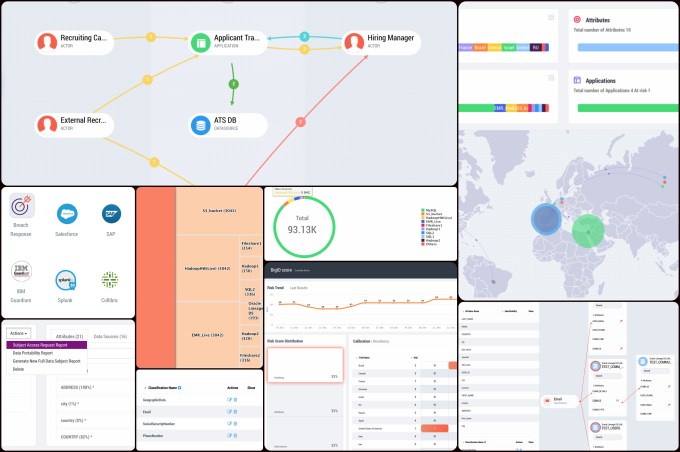Another legacy carrier built on offering phone services is now taking a deeper dive into the world of advertising and specifically ad tech to help catapult itself into the next generation of tech and communications. Today, AT&T confirmed that it is buying AppNexus, a programmatic advertising marketplace that competes against the likes of Google and Facebook and describes itself as the world’s largest independent digital ad exchange.
Today’s release did not reveal any financial terms, except to note that the deal is expected to close in the third quarter of 2018. An AT&T spokesperson has told TechCrunch that AT&T is not commenting on the terms of the deal.
The news caps off a week of speculation after it was reported last week that AT&T was eyeing up the company for about $1.6 billion, and it comes just weeks after AT&T closed its deal to buy TimeWarner for nearly $85 billion.
AppNexus reportedly confidentially filed for an IPO in November 2016, valuing the company at between $1.5 billion and $2 billion although that deal appeared never to materialise. AppNexus had raised about $344 million from a range of investors including News Corp., WPP, Fidelity, TCV, Microsoft, Deutsche Telekom, Khosla, and many more.
AppNexus says that some 34,000 publishers and 177,000 brands use its marketplace today to connect ads with ad placements and audiences to see them. The company is also an ad tech play, providing a range of tools to measure engagement and optimise performance of ads. AT&T said that it plans to put AppNexus under its existing advertising and analytics division.
As with Verizon and other carriers, AT&T has been working on ways of expanding its advertising business on top of its existing mobile network and broadband access operations, and now its extensive content operations.
Carriers like AT&T are between a rock and a hard place these days. On one side, their broadband and mobile (and, to an increasingly lesser extent, fixed voice) networks have become increasingly commoditised over the years. On the other side, they are being squeezed by companies like Google, Facebook, Apple, and a plethora of media and other tech companies. These companies dominate in content and “owning” consumers as subscribers, app users and smartphone brands, leaving little room for carrier to do much.
Buying TimeWarner will have given AT&T a seat at the table when it comes to video and other entertainment, and now it is adding more technology to help monetise that content.
Advertising — and ad tech — represent opportunities for carriers like AT&T to grow their revenues around the data that they already have about their connectivity customers — which in AT&T’s case exceeds 170 million “direct-to-consumer relationships across its wireless, video and broadband businesses.” Notably, AppNexus is “independent” of any of that range of media and tech titans. And while AT&T is focused mainly on the US market, AppNexus will give it further reach into Asia-Pacific, Australia, Europe, and Latin America.
(This was also the rationale behind Verizon’s acquisition of AOL, which owns TechCrunch, and later Yahoo, which together are now branded as Oath.)
“Ad tech unites real-time analytics and technology with our premium TV and video content,” said Brian Lesser, CEO of the division at AT&T. “So, we went out and found the strongest player in the space. AppNexus has scale of infrastructure, advanced technology and diverse talent. The combination of AT&T advertising & analytics and AppNexus will help deliver a world-class advertising platform that provides brands and publishers a new and innovative way to reach consumers in the marketplace today.”
Although AT&T could have built this from the ground up, this bolts on some 400 engineers and IP and an existing business to the company.
AT&T says it “will continue to invest in and build on AppNexus’ foundational technology as it integrates with AT&T’s first-party data, premium video content and distribution.”
“Innovation is core to the heritage of both AT&T and AppNexus, and we have an exciting opportunity to chart the future course of advertising together,” said Brian O’Kelley, CEO, AppNexus, in a statement. “Combining AT&T’s incredible assets with our technology, we will help brands and marketers power new advertising experiences for consumers. It’s what the market is asking for, and together we’re poised to deliver it.”
AT&T’s ad-supported premium video content portfolio currently includes Turner Networks, Audience Network, and Otter Media.





